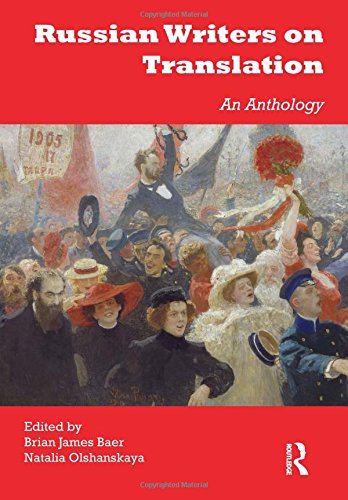

Most ebook files are in PDF format, so you can easily read them using various software such as Foxit Reader or directly on the Google Chrome browser.
Some ebook files are released by publishers in other formats such as .awz, .mobi, .epub, .fb2, etc. You may need to install specific software to read these formats on mobile/PC, such as Calibre.
Please read the tutorial at this link: https://ebookbell.com/faq
We offer FREE conversion to the popular formats you request; however, this may take some time. Therefore, right after payment, please email us, and we will try to provide the service as quickly as possible.
For some exceptional file formats or broken links (if any), please refrain from opening any disputes. Instead, email us first, and we will try to assist within a maximum of 6 hours.
EbookBell Team

0.0
0 reviewsSince the early eighteenth century, following Peter the Great’s policy of forced westernization, translation in Russia has been a very visible and much-discussed practice. Generally perceived as an important service to the state and the nation, translation was also viewed as a high art, leading many Russian poets and writers to engage in literary translation in a serious and sustained manner. As a result, translations were generally regarded as an integral part of an author’s oeuvre and of Russian literature as a whole.
This volume brings together Russian writings on translation from the mid-18th century until today and presents them in chronological order, providing valuable insights into the theory and practice of translation in Russia. Authored by some of Russia’s leading writers, such as Aleksandr Pushkin, Fedor Dostoevskii, Lev Tolstoi, Maksim Gorkii, and Anna Akhmatova, many of these texts are translated into English for the first time. They are accompanied by extensive annotation and biographical sketches of the authors, and reveal Russian translation discourse to be a sophisticated and often politicized exploration of Russian national identity, as well as the nature of the modern subject.
Russian Writers on Translation fills a persistent gap in the literature on alternative translation traditions, highlighting the vibrant and intense culture of translation on Europe’s ‘periphery’. Viewed in a broad cultural context, the selected texts reflect a nuanced understanding of the Russian response to world literature and highlight the attempts of Russian writers to promote Russia as an all-inclusive cultural model.